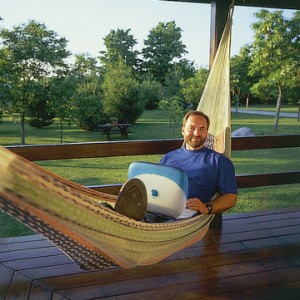 My Conversation with a 100 Acre Homesteader
My Conversation with a 100 Acre Homesteader
I had the good fortune to meet a young man who recently moved from the city to a country property not far from me. He bought 100 acres of decent land and he’s been bouncing technical ideas off me about home building and growing things. One thing that didn’t come up spontaneously is economics, and that’s why I raised the topic with this guy.
Homesteading Reality Check: Am I Financially Self-Reliant?
As a homesteader, economics are much more important than I realized when I started out nearly 30 years ago. This same oversight is one reason I regularly see new homesteaders fall into a sad scenario that often goes remarkably like this:
- Visionary person comes to the country wanting to be part of a good and natural lifestyle.
- Person has plans for pursuing small-scale agriculture as means of making the modest amount of money they figure is necessary for purchased essentials (i.e. a little bit of fuel, a bottle of Tylenol now and then, tools for the self-sufficient lifestyle, property taxes, etc).
- Person under-estimates the amount of money required to meet their expectations, while also over-estimating the earnings they expect to come from a small-scale, agriculture-based business
- Economic realities (i.e. poverty) force the person to take some basic, off-homestead job “temporarily” – a job that’s typically incompatible with the ideals that brought them to the country in the first place. This temporary job also takes up all the time, energy and enthusiasm available most days.
- Two or three or four years down the road, the visionary person runs out of enthusiasm and goes back to the city because their life is consumed by a basic, off-homestead job and bears virtually no resemblance to the homestead lifestyle they set out to create. As noble and necessary as all legitimate occupations are, few of them mesh well with homesteading. In fact, a homestead situation is a definite drawback when you’ve got to travel away from it regularly to earn money.
Financial Advice to Homesteaders: Don’t Rely on Selling Crops
The economic danger was something that I hadn’t realized when I left the city for the country in 1985, and that’s why I point it out now. As a hopeful homesteader, perhaps you’ve got the realities of economics covered. If not, sit down with a paper and pencil to consider them carefully. Even without a family to support, you’ll find that thousands of dollars of annual income per year is necessary to cover essential expenses while also providing resources to build your dream with.
The trick, as I’ve come to realize, is providing all the money and goods that you need on your own, without leaving the homestead. This is exceptionally important, but often misunderstood. The problem is that most people automatically assume that growing things is the only way to make homestead income happen. It’s not. In fact, I’ve discovered that making the money you need from the products of the land typically involves trading a lot of time, effort and risk in exchange for a surprisingly small amount of cash. North America has a cheap food policy, and this reality trickles down to the prices people receive for local production, too. When I grew strawberries for sale here at my place in the early 1990s, for instance, I’d spend 15 hot, dusty hours working the patch for the same amount of money that I’d get from one hour spent in a non-agricultural homestead business.
To put this in perspective, consider the price of food in Europe. My wife and I visited Italy, and one morning we bought our fruit for the day from a small shop that caters to locals. We bought half a pint of raspberries, half a pint of blackberries, three oranges and two peaches. The fruit was lovely but cost us nearly $30. That’s more than three times what we’d pay here at home, even in our little local supermarket that sells things at higher prices than big-city stores. Cheap food is a wonderful thing in some ways, but it does come at the cost of making it very difficult for small, artisan food producers to make ends meet. It’s not impossible for hand-crafted food products to compete in the North American marketplace where prices are set by factory farms, but it is very challenging.
I love to grow things, but there’s no way the economics of small scale agriculture were going to support the modest financial needs of me and my wife, let along the 5 kids we have now. That 15:1 ratio made sure of that. I eventually realized that I’d need to get bigger and more machine-intensive to even have a hope of making the economics of small fruit production pay off in a cheap-food economy, and I didn’t want to mechanize and chemicalize my dream. Instead, I now garden directly for my family, but earn the money we need from some pleasant work that we do entirely on the homestead. For what it’s worth, this is one of the things I’ve learned living out here on the land.
Got a Homesteading Question? Ask Steve Maxwell
Got technical questions about homesteading and rural life? Need help with the philosophy of it all? I’ve been living out here on our homestead long enough that I probably have some answers.
I’d like to see more people succeed with the homestead dream, and that’s why I’m inviting you to email questions to me for answering online by video. I promise to read everything sent to Ask Steve Maxwell, and I’ll answer all the queries that I can with an email or video addressing your question individually, with new videos updated online as I create them.
Bookmark my Q&A Forum and watch for my response, or come back here to read the answers I post online.